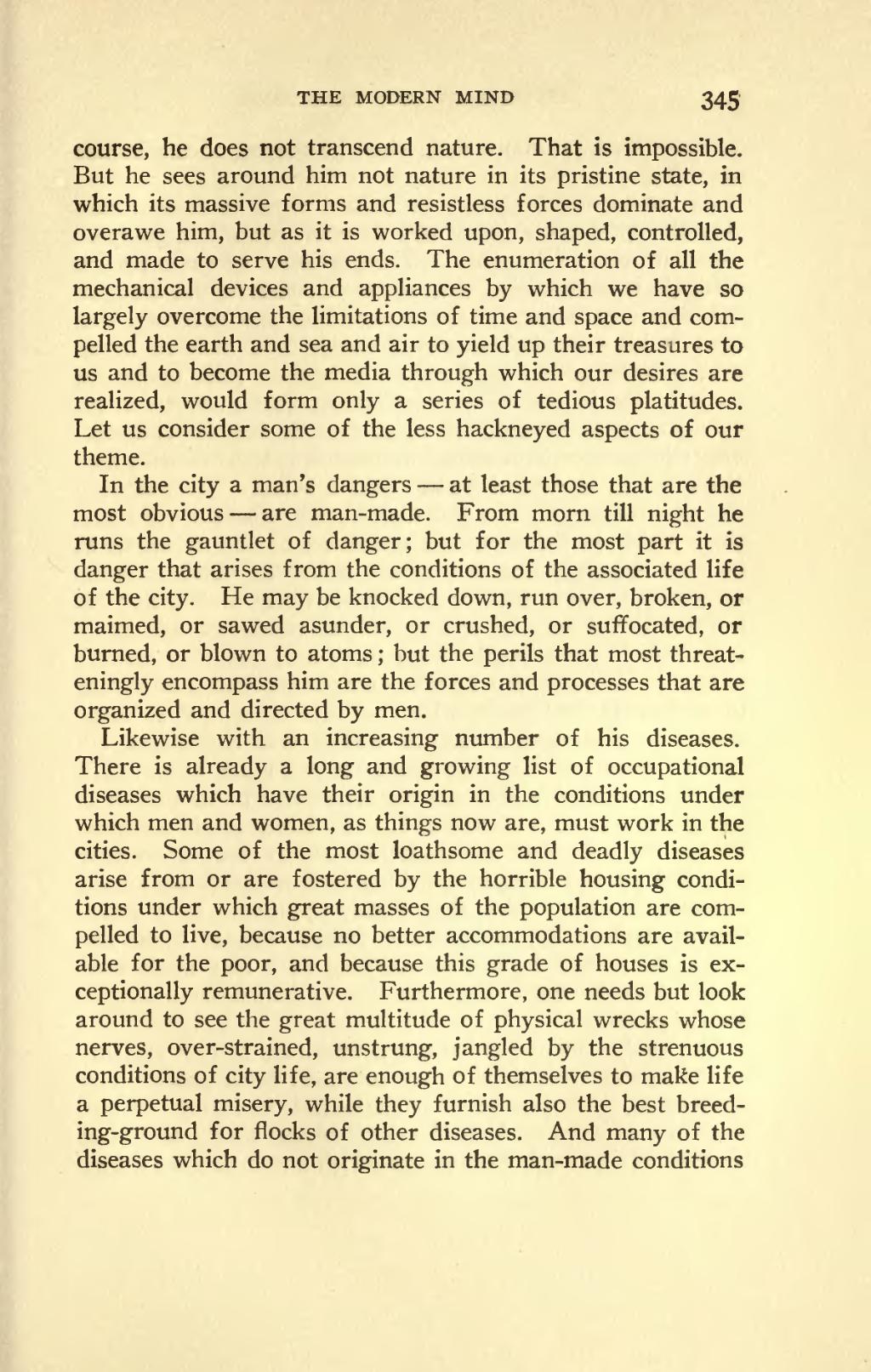THE MODERN MIND 345
course, he does not transcend nature. That is impossible. But he sees around him not nature in its pristine state, in which its massive forms and resistless forces dominate and overawe him, but as it is worked upon, shaped, controlled, and made to serve his ends. The enumeration of all the mechanical devices and appliances by which we have so largely overcome the limitations of time and space and com pelled the earth and sea and air to yield up their treasures to us and to become the media through which our desires are realized, would form only a series of tedious platitudes. Let us consider some of the less hackneyed aspects of our theme.
In the city a man s dangers at least those that are the most obvious are man-made. From morn till night he runs the gauntlet of danger; but for the most part it is danger that arises from the conditions of the associated life of the city. He may be knocked down, run over, broken, or maimed, or sawed asunder, or crushed, or suffocated, or burned, or blown to atoms ; but the perils that most threat eningly encompass him are the forces and processes that are organized and directed by men.
Likewise with an increasing number of his diseases. There is already a long and growing list of occupational diseases which have their origin in the conditions under which men and women, as things now are, must work in the cities. Some of the most loathsome and deadly diseases arise from or are fostered by the horrible housing condi tions under which great masses of the population are com pelled to live, because no better accommodations are avail able for the poor, and because this grade of houses is ex ceptionally remunerative. Furthermore, one needs but look around to see the great multitude of physical wrecks whose nerves, over-strained, unstrung, jangled by the strenuous conditions of city life, are enough of themselves to make life a perpetual misery, while they furnish also the best breed ing-ground for flocks of other diseases. And many of the diseases which do not originate in the man-made conditions
�� �
